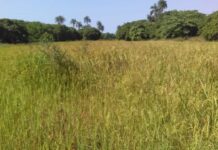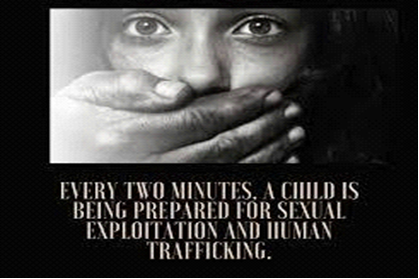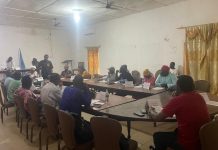By Ndey Sowe
The Global report on Trafficking in Persons, 2022 has indicated that trafficking for sexual exploitation was less detected during the Covid-19 pandemic.
According to the report, 24% reduction compared to 2019 in the detection of victims trafficked for sexual exploitation.
The report also indicated that many identified victims of sexual exploitation are exploited in public venues, such as bars and clubs or outdoors.
During the protective measures applied in response to the Covid-19 pandemic, the report highlighted that sexual exploitation may have reduced due to the closure of public spaces and it may have also been pushed into less visible and less safe locations, making this form of trafficking more concealed and harder to be detected.
“In 2020, a drastic drop in the detection of trafficking for sexual exploitation was recorded in most of the world. The only exception was North America, where the detection of victims of this form of trafficking continued to increase in 2020 at the same growth rate recorded in previous years,” the report stated.
The report revealed that women and children face more violent exploitation. Female victims (women and girls) account for 60 per cent of the total number of detected victims in 2020.
Analysis of the case summaries collected by UNODC suggested that traffickers use more violence with women and child victims, especially girls.
The report also stated that the court case summaries involving children suggest that the average age of detected child victims ranges around 14-15 years of age. For all forms of exploitation, in general, adult victims of trafficking for forced labour are older than those who are trafficked for sexual exploitation.
“The limited number of cases involving trafficking for the purpose of forced begging suggests that victims of this form of exploitation might be much older than other trafficked victims, as some victims reported in these cases were above 50-years-old,” the report highlighted.
The report indicates that countries in the Middle East and North Africa region report cases where victims are sexually exploited in private apartments. In South America and East Asia, victims are exploited in public locations and in South America, most victims seem to be exploited in bars and nightclubs, while in East Asia more cases report victims having been exploited in tourist locations, such as Karaoke bars, hotels or sauna/massage parlours.
The possible responses highlighted by the report urged member States to promote joint interventions bringing together law enforcement, social protection services, civil society organizations and the private sector to identify and protect victims exploited in private apartments, hotels and other concealed locations.
It also urged member states and private sector to promote government regulation of online platforms, including robust obligations for online service providers to maintain the core responsibility to prevent and stop trafficking in persons, and to further collaboration between governments, the technology industry and anti-trafficking stakeholders is critical for the deployment of technology tools and the design of state policies and legislation.
The report stressed that countries should require online platforms to implement prevention measures such as age and consent, verification and high visibility content removal request mechanisms, and conduct regular due diligence of operations and systems based on concrete standards to identify risk of misuse of their platforms and resources by traffickers and to mitigate any risks that are found and conduct proactive monitoring for exploitative materials and misuse of platforms while establishing mechanisms that allow direct reporting by the public to companies to name a few.
The Global Report on Tracking in Persons 2022, (GLOTIP), is prepared by the United Nations Office on Drugs and Crime (UNODC) Crime Research Section under the supervision of Jean-Luc Lemahieu, Director of the Division for Policy Analysis and Public Affairs, Angela Me, Chief of the Research and Trend Analysis Branch (RAB), and Sonya Yee, Senior Coordinator at RAB.





















